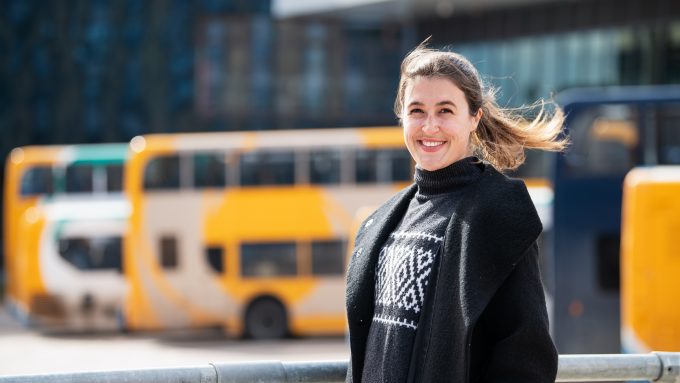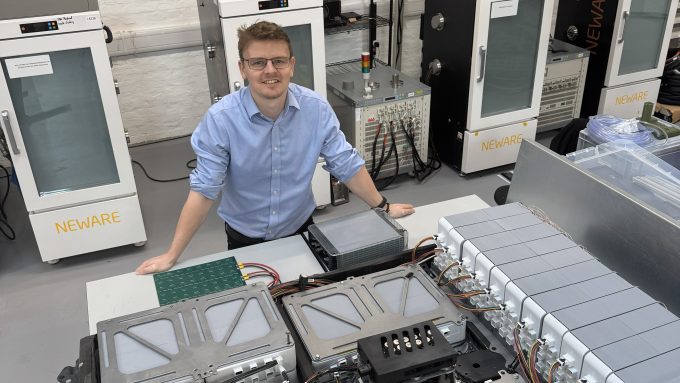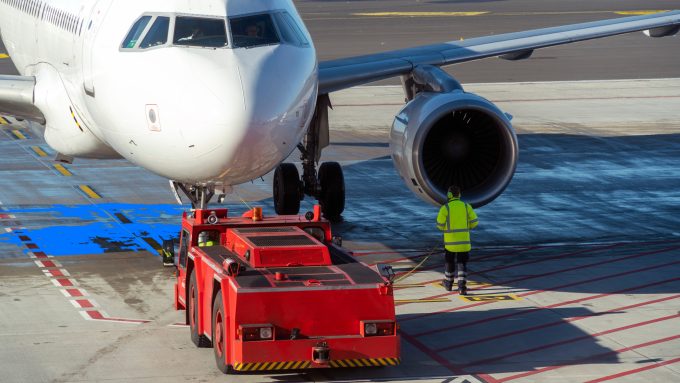
Meet the academic matchmaking researchers with industry
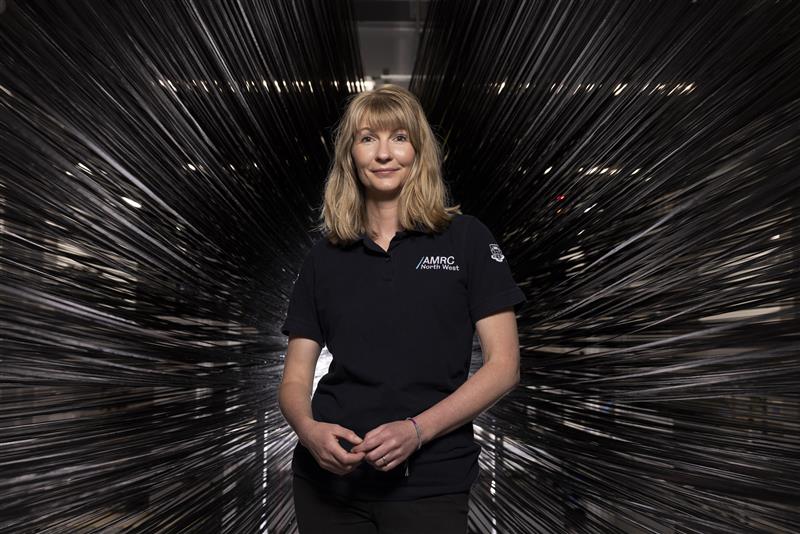
“I hate the thought of amazing research being trapped in academia, and not being pulled through to industry to help solve some of society’s problems,” says Dr Kristina Parry from the University of Sheffield Advanced Manufacturing Research Centre (AMRC), part of the High Value Manufacturing Catapult.
“It’s important that innovation doesn’t die in the lab.”Dr Kristina Parry
Kristina manages the Innovation Launchpad Network+ which supports 107 academics involved in the Researchers in Residence programme across the Innovate UK Catapult Network – including 14 individuals supported by Connected Places Catapult.
Her broader role at the AMRC, to help translate research from small projects into industrial applications, is funded by the EPSRC Innovation Launchpad Network+ which she describes as a “dating agency for researchers who want to take the next step.
“We match them with Catapults who have industrial expertise and connections. My role is very people focused and not about squinting at project plans and budget sheets, but aligning everybody's interests.
“Some of the researchers have been so grateful for this opportunity, especially early career researchers for whom this may be the first time they’ve independently won funding,” she adds.
Also of note is that 10 out of 14 Researchers in Residence backed by Connected Places Catapult have recently progressed their careers with either a new job or promotion.
Inspired by Long Distance Clara
Kristina was born in Lancashire and grew up north of Liverpool. Her father and older brother were engineers and she remembers playing with Meccano, making show jumps for her toy horses, and taking an interest in helping fix her brother’s car. “My WhatsApp picture is me as a three year old with a spanner in my hand next to a Hillman Imp”.
Another early career influence was cartoon character Long Distance Clara from children’s television series Pigeon Street. “I absolutely adored her,” Kristina says of the female lorry driver navigating Britain’s motorways.
“This was the early 80s when most women on TV were hairdressers, worked in shops and went about in flowery dresses and high heels. Long Distance Clara wore jeans and a jumper. I thought ‘I like this woman’ and aged four, I told my mum I wanted to be a lorry driver. It opened my eyes to careers for women, but which were not typical of the time.”
Kristina had dreams of being a dentist in the Royal Navy, but her A level grades in biology, chemistry, maths and general studies were not quite enough to study dentistry at Sheffield. However, she was offered a place on a relatively new course involving elements of dentistry, called biomedical materials science and engineering, so studied that.
She remembers an industrial tour of manufacturing sites in the North East, including visits to glassworks and steelworks. “It was good to see the practical application of what we were learning in lectures.” At this stage Kristina was considering careers in production engineering or healthcare manufacturing.
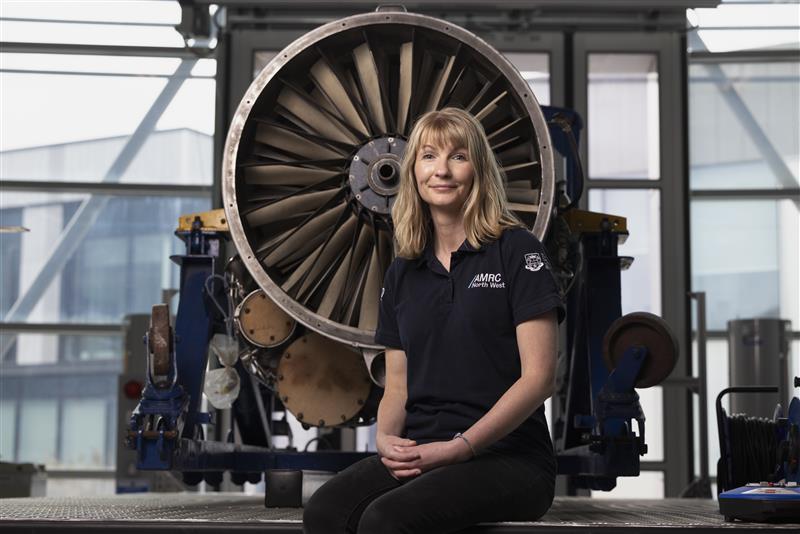
A varied early career
But a PhD supervisor asked if she would like to work on a bioscience project creating plasma coatings to reduce the need for animal testing in medicine and cosmetics, as part of a Doctorate. Kristina later joined her supervisor – Professor Rob Short – at his spin-out company Plasso, and stayed for seven years.
“We were transferring technologies into production and doing well, but the financial crash led to three of us being made redundant. Rob moved to Australia and offered me a post there. The job looked fantastic but I didn’t like Adelaide enough to move with my husband, so we returned to Rotherham.”
Kristina started temping while applying for permanent positions; working on reception for Mercedes Trucks – “the closest I ever got to Long Distance Clara” – and spent two weeks in a sausage factory helping prepare for a quality control audit.
She enjoyed the role, so pursued a position as a quality engineer at AMRC in 2010, calibrating and checking equipment. “From the off, I found the environment very exciting and saw very clever people doing cool stuff, working with partners including Rolls Royce and Airbus.”
After six months, Kristina’s boss asked her to read a book about environmental management regulation ISO 14001, and take notes. He then told her: ‘You now know the most about this’ so she was promoted and helped the company achieve the standard.
She was later consortium manager for a ‘5G factory of the future’ in North West England, led by AMRC North West – a testbed for manufacturers to “come and play”.
“I knew nothing about digital technology, just as I previously knew nothing about environmental management, but I did know how to run projects – and was adaptable,” Kristina says. “One of the consortium members on the 5G project recently told me they just sold their first product after developing software with us, which was amazing.”
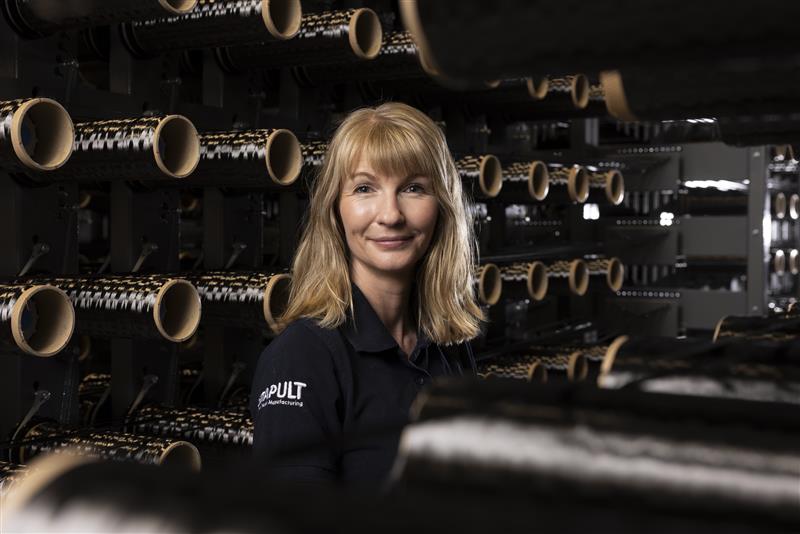
Helping a huge variety of researchers
Today with the Innovation Launchpad Network+ she enjoys working with researchers on an “enormous variety” of projects, all at different stages of their careers. “For some, this is the first thing they have applied for, and others have addressed Parliamentary committees. All still face gaps in support that we can help with, such as with commercialisation, connecting them with industry and Government, and helping identify applications for their products or solutions.”
Kristina remembers one Researcher in Residence whose process released a by-product that at lab scale was of no concern; but their host Catapult identified that upon scale-up it may become a health and safety issue. They collaborated to modify the process, making it safe to produce larger batches.
One skill that Kristina helps some academics with is explaining their work clearly to those who aren’t experts. “I ask them to consider what the news headline would be for their project.”
She is proud to help researchers commercialise their work, or bid for more funding.
“Connected Places Catapult has been outstanding. They are really invested in the programme and help me keep the Researchers in Residence on track.”
It’s been a varied and interesting journey so far for Kristina the materials scientist, who went on to develop plasma coatings, improve quality control and project manage an academic programme at an advanced manufacturing centre. “I'll take any opportunity,” she reflects. “I didn’t end up being a lorry driver or a dentist, but often thought: ‘That looks good, I will do that’.
“I like to make myself useful, work on things I’m passionate about, and feel what I'm doing is worthwhile.”
Find out more about the Researchers in Residence programme, and read about the work of other academics supported on the programme by Connected Places Catapult. To join our Academic Network click here.
The Innovation Launchpad Network+ is funded by the Engineering and Physical Sciences Research Council, and brings together leading universities with the Innovate UK Catapult Network to help with knowledge exchange. The University of Sheffield Advanced Manufacturing Research Centre is part of the High Value Manufacturing Catapult.

